This post may contain affiliate links. Please read our disclosure policy.

I spent the nine months I was pregnant with my daughter researching just about everything:
- Home birth vs. hospital birth
- Breastfeeding tips and supplies
- Pain management during labor
- The best cloth diapers
- Low-VOC paint for the nursery
- Introducing my dogs to the new baby
- Rockers and bassinets
- The safest car seats and strollers
I’ll stop there, but you get the idea. I was determined to be as prepared as possible for anything that might come up.
But amid all that research, there was one topic I never dove into: postpartum depression and anxiety.
When I thought of postpartum depression, I thought of those occasional (horrible) headlines you see in the news. (Those are typically because mom was suffering from postpartum psychosis, by the way.) It seemed like that was something that could happen to “other moms,” but definitely not me.
And postpartum anxiety? I had no clue it was thing.
The truth is, not only could postpartum depression and anxiety (PPD/PPA) happen to me, it happens to a lot of women: recent research from the CDC suggests it occurs in about 1 in 7 women. And that number is likely low because many women don’t report their struggles or seek help.
There’s no one way to prevent PPD/PPA, but there are solutions and treatment. By raising awareness, women who are struggling can get the help they need sooner. You do not have to suffer. What I learned ultimately helped me have a completely different postpartum experience with my second child.
Jump to:
Baby Blues vs Postpartum Depression
Having a kid is a huge shift physically, mentally, and emotionally.
First, your body goes through the (sometimes) very long process of birthing a human. Then, your hormones drastically shift. If you’re breastfeeding, that’s another huge physical change and task that comes with its own challenges.
You’re dealing with all of that… plus being in charge of a tiny human who is 100% dependent on you 24 hours per day.
Listen mama, it’s a lot! That’s why it’s very normal to have some changes in mood, commonly called “the baby blues.”
According to the CDC, worry, sadness, and tiredness are all normal symptoms to experience during the baby blues period (2-3 weeks after birth). If you’re not always feeling sunshine and roses during the newborn period, that doesn’t necessarily mean you’re experiencing postpartum depression or anxiety.
Wishing you could just get a moment to yourself to shower? That’s normal. A good cry or two? Very necessary. And realizing that your life is never going to be the same? It’s definitely part of the adjustment period.
So how do you tell the difference between baby blues and postpartum depression?
The “Baby blues” should resolve within a few days. It’s a sign you need more rest, nourishing food, and support from your family and friends.
In contrast, postpartum depression symptoms can include:
- Feelings of anger, sadness, irritability, and guilt (“Why did I do this to my life?”)
- Lack of interest in the baby (feeling completely disconnected)
- Changes in appetite or sleeping (beyond just the newborn schedule)
- In extreme cases, thoughts of hurting yourself (although not every woman with PPD will experience this)
Postpartum anxiety symptoms include:
- Extreme worries and fears around the safety of the baby (“I don’t want to drive because I’m afraid my baby will die in a car crash!”)
- Intrusive thoughts (usually about something bad happening to the baby)
- Extreme worry around your ability to handle daily tasks and potential challenges as a care giver
- Panic attacks, shortness of breath, elevated heart rate, etc.
Some women experience both postpartum depression and anxiety, while others may just deal with one.
Important: If you’re uncertain if you’re dealing with “baby blues” it is ALWAYS better to ask for help than not. No one can diagnose or rule out PPA/PPD over the internet. If you’re even a *tiny bit* concerned, please reach out for help. Get help and guidance right now from the Postpartum Support International free hotline.
What Causes Postpartum Depression and Anxiety?
No one thing causes (or can prevent) postpartum depression or anxiety.
Research suggests it is likely caused by a combination of quickly changing hormone levels after birth along with physical exhaustion, nutrient depletion, and sleep deprivation.
Postpartum depression and anxiety can affect anyone. You don’t need to have a history of depression and anxiety or any particular set of circumstances for it to happen to you.
And while there is some interesting information out there about nutrient deficiencies being associated with PPD/PPA, you can’t just eat, sleep, or exercise your way out of it.
Yes, you need need to eat (enough!), sleep as much as you can, and take some time to do things to take care of you, but you can’t control PPA/PPD by eating more kale.
The most important thing to know about PPD/PPA? It’s not your fault, and it is treatable. When you’re in the depths of PPD/PPA, it can feel like there is no way out. But there are solutions!
The Problem with Postpartum Depression and Anxiety Treatment
Aside from being under-discussed overall, there’s a major problem with current approaches to identifying and treating postpartum depression and anxiety.
Most new moms don’t see their care provider until 6 weeks after birth. Unfortunately, PPD/PPA is most likely to set in between one and four weeks postpartum.
Because women aren’t seen by their own doctor for six weeks, most women are screened for postpartum depression using the Edinburgh Postnatal Depression Scale (EPDS) at their child’s first pediatrician appointment.
You are given a simple 10-question survey, which asks you to rank how “sad and miserable” you’ve been feeling, or if “things are getting on top of you.” In my opinion, these are sort of fuzzy questions for a new mom to answer. Of course you’re crying and things are getting on top of you with a newborn.
The other issue with this screening is that it’s easy to answer the questions in the way you know they should be answered, especially if you’re doing it in the waiting room of your pediatrician. Not to mention, there is no attention specifically given to postpartum anxiety in this questionnaire.
That may be why research shows 60% of women with symptoms of postpartum depression don’t get a diagnosis, and 50% of women who are diagnosed don’t receive any treatment.
My experience? At my daughter’s 1-month checkup, I decided to answer the questions truthfully to see how things worked out. I had had a particularly terrible week with my husband being out of town and my colicky child screaming and not sleeping at night. I was crying, things were getting on top of me, and I was dreading the days.
When I had “failed” the questionnaire by one point, my child’s pediatrician asked “So, you failed by one point. Everything OK?” I told him I was tired and anxious about my daughter’s crying all the time. He sort of chuckled and said it wold get better once I started to sleep again.
And so, there you go. I became one of those women who don’t receive a diagnosis or get help. I decided it wasn’t worth it to bring it up anymore after that.
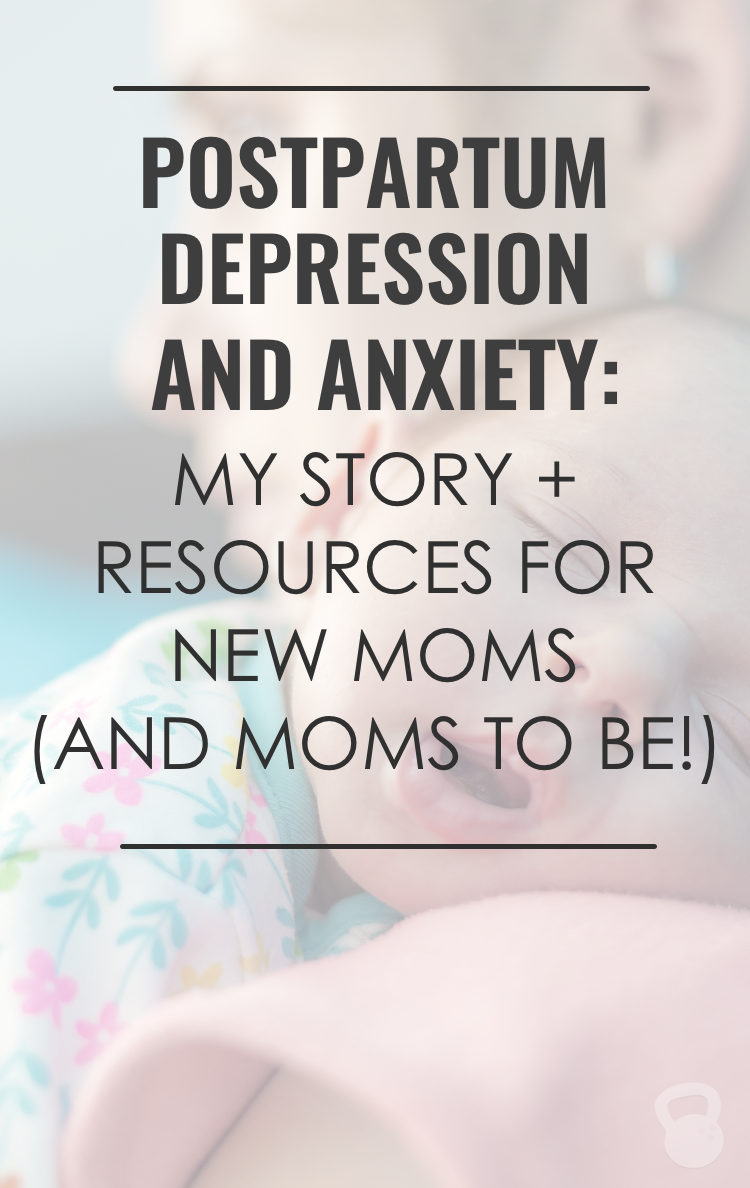
My Experience with Postpartum Anxiety
I’ve struggled with what I’d call “manageable” anxiety my entire life.
When I was in grade school, I started suffering from panic attacks anytime I would go into a store or mall. Eventually, I realized my pattern of thinking was broken, and worked through it. As an adult, my anxiety began to manifest as perfectionism and the desire to control my body and my circumstances through food and exercise.
Then, I had a miscarriage. It was completely out of my control and unexplainable. I had a hard time dealing with it immediately after it happened. Even after I processed it and moved on, I always felt this underlying worry and fear about anything regarding pregnancy.
When I got pregnant with my daughter, every day was a struggle. I always feared something was going to go wrong. When I felt an abnormal cramp, I would start to experience extreme anxiety and think I was having a miscarriage again.
I kept telling myself, “just make it to 6 weeks”. Then, it was 12 weeks. Then it was 24 weeks. Eventually, we made it to 37 weeks (full term!), but my daughter was breeched and we had some complications associated with it. I had to do additional visits to make sure she still had a heartbeat.
Every night my husband and I would pray together, and do deep breathing/hypo-birthing tracks to relax. It helped, and I thought everything would be better once she was here.
But when Stella was born, after the first few days of excitement, my anxiety only got worse.
We had a very colicky, strong-willed baby who wouldn’t sleep. She would scream ALL THE TIME. I also had serious breastfeeding issues. I was researching things non-stop and calling everyone I knew for advice. They told me sometimes these things just work themselves out, and it would likely get better by 3 months.
I couldn’t imagine having to endure what I was experiencing for that long.
After about a month, anxiety took over. I was constantly worried about her, her well-being, and her health. I was overestimating the risks, and underestimating my ability to handle them.
The less sleep I got, the worse it got. I started getting anxious about not getting sleep. I remember even telling my husband one morning “I don’t want to do this anymore.”
Unfortunately, I didn’t get help. My anxiety was pretty bad until she started sleeping through the night at 6 months old. And once she did, I realized how broken I had been. I started working on my anxiety, and it eventually got better at about a year postpartum.
The good news is, with my second, I haven’t had any postpartum anxiety. And it’s because I approached my postpartum recovery differently.
If you want to hear more of my postpartum anxiety story, check out Episode 194 of the Well-Fed Women Podcast.
If You’re Expecting: 4 Steps To Get Prepared
If you’re pregnant now (or planning to be pregnant soon!) there are steps you can take to be prepared for the possibility of PPD/PPA.
A quick disclaimer: there is nothing you can do or not do that will guarantee you won’t get PPD/PPA. If you do struggle, you didn’t do anything “wrong”. But there are things you can do that will set you up for success, including:
1. Have a talk with your doctor before you give birth
In the weeks leading up to your birth, you’ll be seeing your health care provider a lot. Please, use one of those appointments to talk about the potential symptoms of postpartum depression and anxiety, and what you need to do to get help. Who do you call? Do you need a referral to see a therapist? Are there any supplements or medications they might prescribe? Have the talk now and create a game plan so you have the resources you need when you’re in the thick of it.
2. Consider making a pre-emptive appointment with a therapist
Even if you’ve never had any symptoms of depression or anxiety, having a baby is reason enough to go to therapy. Consider making an intro appointment with a therapist before the baby is born, so that you have an established relationship should you need support after the baby is born. If you can’t make an appointment, at least have the name and number of a therapist ready to call.
3. Make a plan with your partner and support system
My husband and I didn’t discuss depression or anxiety before my daughter was born, but I wish we had (and we certainly did before the birth of our son!). Your partner is likely to be the first person to notice changes in your mood that can be the first signs of PPD/PPA. Make sure they are aware of signs and symptoms, and know what to do to get you help. It can also be helpful to create a plan for them to check in with you every few days about how you’re feeling (this sounds simple but it’s easy to overlook with a newborn to care for!).
4. Be ready to ask for help
We don’t know exactly what causes PPD/PPA, but we do know stress and exhaustion play a role. That’s why setting boundaries, asking for help, and focusing on your recovery are so important in the early days of bringing a newborn home. To set yourself up for success postpartum, read Postpartum Recovery: 8 Things You Need to Do After Giving Birth.
At my own breaking point with PPA, I was 100% focused on my daughter and 0% focused on my own needs. That wasn’t sustainable for any of us.
If You’re Struggling: How to Get Help Now
If you’re reading this because you’re struggling with PPD/PPA right now (or just suspect it might be an issue for you), I’m so glad you’re here. There’s no shame in struggling with postpartum depression or anxiety and there is help available.
First, tell someone how you’re feeling right now. Your partner, your mom, your sister, a friend, your pastor… Tell someone you trust that you’re struggling and need more support.
Second, contact your doctor or call the Postpartum Support International free hotline. Only a medical professional can accurately diagnose PPD/PPA, and they’re the only people who can help you develop a treatment strategy.
What I Did to Recover From Postpartum Anxiety
Truthfully, recovery happened slowly for me, and I only got better once I was able to recognize I was struggling with postpartum anxiety. Even though I was well past the newborn phase, once I realized I was suffering from PPA, I decided to get help and support and made some serious lifestyle changes. Here’s what made the most difference for me:
1. Got help covering the basics
This is not a magic fix, but getting help meeting your basic needs is a must so you can focus on recovery. You need food, sleep, a shower, and some time to breath, take a walk, and do nothing. When you’ve got a new baby and are dealing with PPD/PPA, you need as much help as you can get. Usually, asking is the hardest part. Many people will be happy to help you in any way that they can.
2. Talked about my worries and anxieties with my partner
I opened up to my husband about my fear and anxieties. This immediately made me feel like I wasn’t alone. It also got my thoughts out of my head, which gave them less power. He stepped up to support me in every area that he could, and prayed with me regularly. To this day, he knows what to look out for. He’s there to listen, help me work through it, and provide additional support if needed.
3. Got a grocery delivery service
This is one of those modern conveniences that I am so thankful for (Hi, Thrive Market and Prime Delivery!). I get groceries delivered 2-3 times a week from various places. I keep the house stocked with lots of easy-to-grab foods, which makes staying properly nourished easy.
4. Prioritized sleep over everything
Yes, sleep when you have small children is hard. But resting and sleeping as much as you can is critical to recovery. Ask someone to come over to help in the middle of the night. Talk to your partner about taking over for a couple evenings a week. It’s a must for your health.
5. Stopped Googling!
In the worst of my anxiety, I was Googling everything. I spent an entire afternoon Googling what could happen if my daughter found a stray piece of dog food on the ground (before she was even crawling!). Google can absolutely feed your anxieties. My advice: just stop.
6. Reminded myself that this was not forever, and God was my strength
When my daughter was a newborn, I remember watching other people walking outside my window casually enjoying the day. I couldn’t help but wonder if my life would ever be like that again.
Taking care of a newborn blows up your life and changes your whole identity. But it won’t be your forever. Looking to the future helped me get through those long days. I also got in the Word and was brought to verses that reminded me to rely on Christ for strength (Psalm 46:1-3), to be anxious for nothing (Philippians 4:6), and to rest in Him (Matthew 11:28-30).
Let’s Stop the Shame
Now I know that there is no shame in struggling with postpartum depression or anxiety, but more importantly: I know what to do to get help.
When I was pregnant with my son, there was no way to know if I would struggle again with postpartum anxiety. But I did know that this time, I was more prepared than ever before for whatever might happen. To read about what I did to set myself up for success the second time around, check out Postpartum Recovery: 8 Things You Need to Do After Giving Birth.
I hope this article empowers you to openly discuss postpartum depression and anxiety, but more importantly, I hope it helps women in need get the help they deserve.
I know this is a difficult subject to discuss. Thanks for sticking with me.
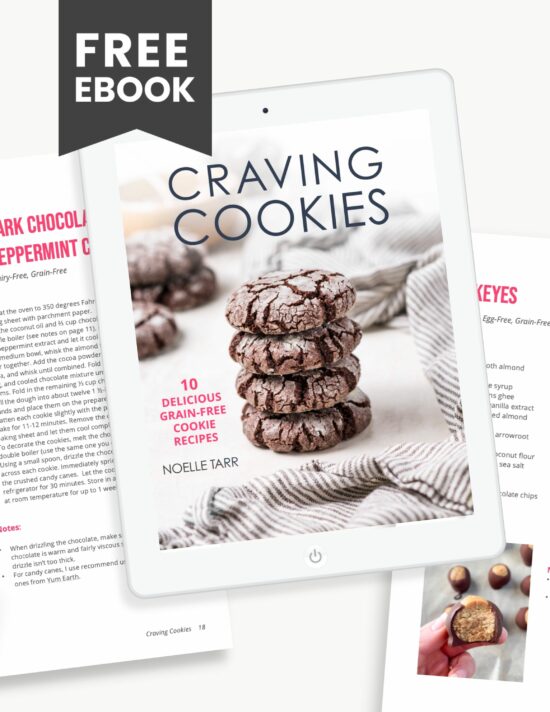
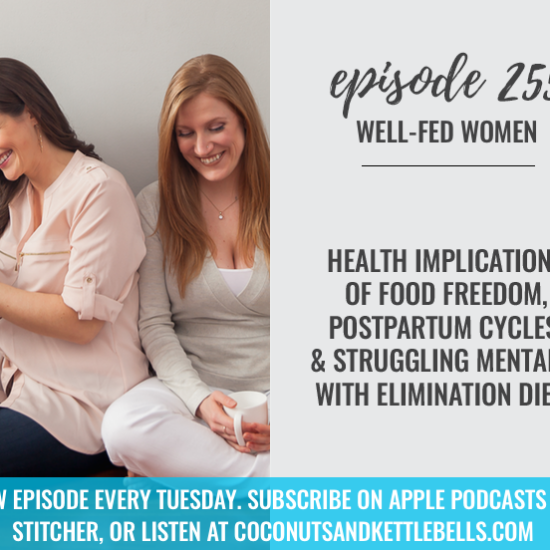
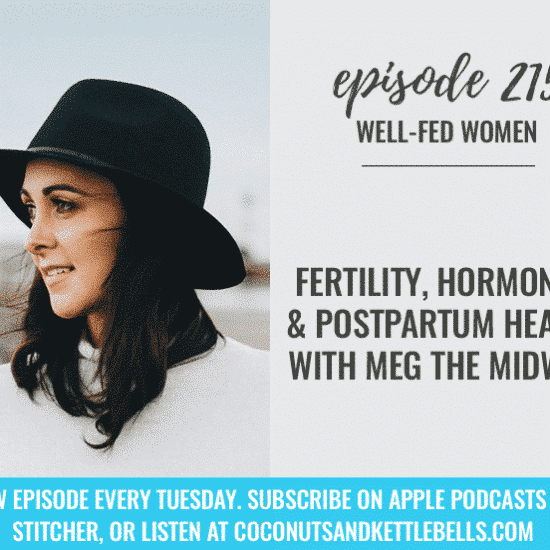
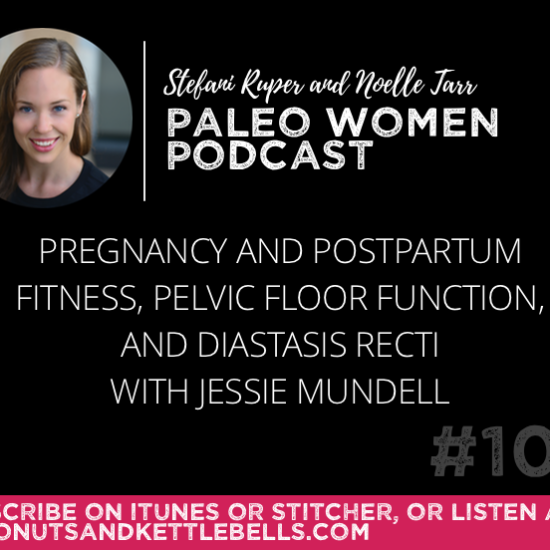
Laura says
Thank you so much for sharing this. My baby boy is 3 weeks tomorrow and I have felt everything you described. The first week was so hard. Constant state of anxiety due to long labor after being induced. Zero sleep leading up to it, during hospital stay and after we got home, hormones crashing, etc. it was intense and scary and I felt like I may never feel the like my former self again. Fast forward two more weeks and I’m on the upswing but know it will take time to find my new normal. It’s comforting to know I’m not alone but I’m so glad you had a much better experience the second time around. Hugs
Noelle Tarr, NTP, CPT says
Hug to you, mama! Thank you for sharing. It is a wildly hard time. You are worthy of help and support, and don’t have to “push through it”. If something doesn’t feel right, get help!
Lindsay says
This was an amazing blog post. Thank you so much for being so candid! I too experienced post partum anxiety after my daughter was born (18 mo ago) and I’m now pregnant with my 2nd. I did not know how to cope with my anxiety either and suffered for awhile as well.
My husband too has learned to recognize my signs as well which I know will help with the upcoming birth of our 2nd.
Thank you thank you thank you again for this blog post.
Noelle Tarr, NTP, CPT says
You are welcome! And I’m happy you are better supported the second time around. There is NO need to suffer and it’s not something you should feel shame about or have to suffer through.
Andi says
Noelle, thank you! I know that your life is busy, and that you’ve been working really hard on this article. I am blessed by it. It was a painfully gentle reminder that in my current struggle of PPA/PPD that 1) I’m not alone, 2) that God is good and there’s a reason, and 3) how severe my condition is. I love the tips on healing and plan to reimplement some of them.
Noelle Tarr, NTP, CPT says
Thank you for sharing. And thanks for your support!
Maria says
Thank you for posting this! I am currently 9 months postpartum and I am struggling with PPD/PPA and OCD tendencies. My struggles hit me hard at month 4 when my daughter went through a terrible sleep regression (up every hour). I have a great support system in my husband but I am home all day alone (especially during COVID) and I lack the support system of family (they live 2 hours away). I am having more good days than bad day now. Glory to God! What I appreciated most about your post is connecting our anxieties to scripture. I wrote them down so I can look at them regularly as means to help me.
Thank you!
Noelle Tarr, NTP, CPT says
So glad it helped, Maria. Thank you for sharing and I’m so glad you have good resources!